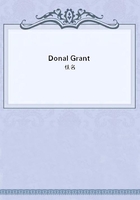
第10章
At the end of the street he came to a low-arched gateway in the middle of a poor-looking house. Within it sat a little bowed man, cobbling diligently at a boot. The sun had left behind him in the west a heap of golden refuse, and cuttings of rose and purple, which shone right in at the archway, and let him see to work. Here was the very man for Donal! A respectable shoemaker would have disdained to patch up the shoes he carried--especially as the owner was in so much need of them.
"It's a bonny nicht," he said.
"Ye may weel mak the remark, sir!" replied the cobbler without looking up, for a critical stitch occupied him. "It's a balmy nicht."
"That's raither a bonny word to put til't!" returned Donal. "There's a kin' o' an air aboot the place I wad hardly hae thoucht balmy!
But troth it's no the fau't o' the nicht!"
"Ye're richt there also," returned the cobbler--his use of the conjunction impressing Donal. "Still, the weather has to du wi' the smell--wi' the mair or less o' 't, that is. It comes frae a tanneree nearby. It's no an ill smell to them 'at's used til't; and ye wad hardly believe me, sir, but I smell the clover throuw 't.
Maybe I'm preejudized, seein' but for the tan-pits I couldna weel drive my trade; but sittin' here frae mornin' to nicht, I get a kin' o' a habit o' luikin' oot for my blessin's. To recognize an auld blessin' 's 'maist better nor to get a new ane. A pair o' shune weel cobblet 's whiles full better nor a new pair."
"They are that," said Donal; "but I dinna jist see hoo yer seemile applies."
"Isna gettin' on a pair o' auld weel-kent an' weel men'it shune, 'at winna nip yer feet nor yet shochle, like waukin' up til a blessin' ye hae been haein' for years, only ye didna ken 't for ane?"
As he spoke, the cobbler lifted a little wizened face and a pair of twinkling eyes to those of the student, revealing a soul as original as his own. He was one of the inwardly inseparable, outwardly far divided company of Christian philosophers, among whom individuality as well as patience is free to work its perfect work. In that glance Donal saw a ripe soul looking out of its tent door, ready to rush into the sunshine of the new life.
He stood for a moment lost in eternal regard of the man. He seemed to have known him for ages. The cobbler looked up again.
"Ye'll be wantin' a han' frae me i' my ain line, I'm thinkin'!" he said, with a kindly nod towards Donal's shoeless feet.
"Sma' doobt!" returned Donal. "I had scarce startit, but was ower far to gang back, whan the sole o' ae shue cam aff, an' I had to tramp it wi' baith my ain."
"An' ye thankit the Lord for the auld blessin' o' bein' born an' broucht up wi' soles o' yer ain!"
"To tell the trowth," answered Donal, "I hae sae mony things to be thankfu' for, it's but sma' won'er I forget mony ane o' them. But noo, an' I thank ye for the exhortation, the Lord's name be praist 'at he gae me feet fit for gangin' upo'!"
He took his shoes from his back, and untying the string that bound them, presented the ailing one to the cobbler.
"That's what we may ca' deith!" remarked the cobbler, slowly turning the invalided shoe.
"Ay, deith it is," answered Donal; "it's a sair divorce o' sole an' body."
"It's a some auld-farrand joke," said the cobbler, "but the fun intil a thing doesna weir oot ony mair nor the poetry or the trowth intil't."
"Who will say there was no providence in the loss of my shoe-sole!" remarked Donal to himself. "Here I am with a friend already!"
The cobbler was submitting the shoes, first the sickly one, now the sound one, to a thorough scrutiny.
"Ye dinna think them worth men'in', I doobt!" said Donal, with a touch of anxiety in his tone.
"I never thoucht that whaur the leather wad haud the steik," replied the cobbler. "But whiles, I confess, I'm jist a wheen tribled to ken hoo to chairge for my wark. It's no barely to consider the time it'll tak me to cloot a pair, but what the weirer 's like to git oot o' them. I canna tak mair nor the job 'ill be worth to the weirer.
An' yet the waur the shune, an' the less to be made o' them, the mair time they tak to mak them worth onything ava'!"
"Surely ye oucht to be paid in proportion to your labour."
"I' that case I wad whiles hae to say til a puir body 'at hadna anither pair i' the warl', 'at her ae pair o' shune wasna worth men'in'; an' that wad be a hertbrak, an' sair feet forby, to sic as couldna, like yersel', sir, gang upo' the Lord's ain shune."